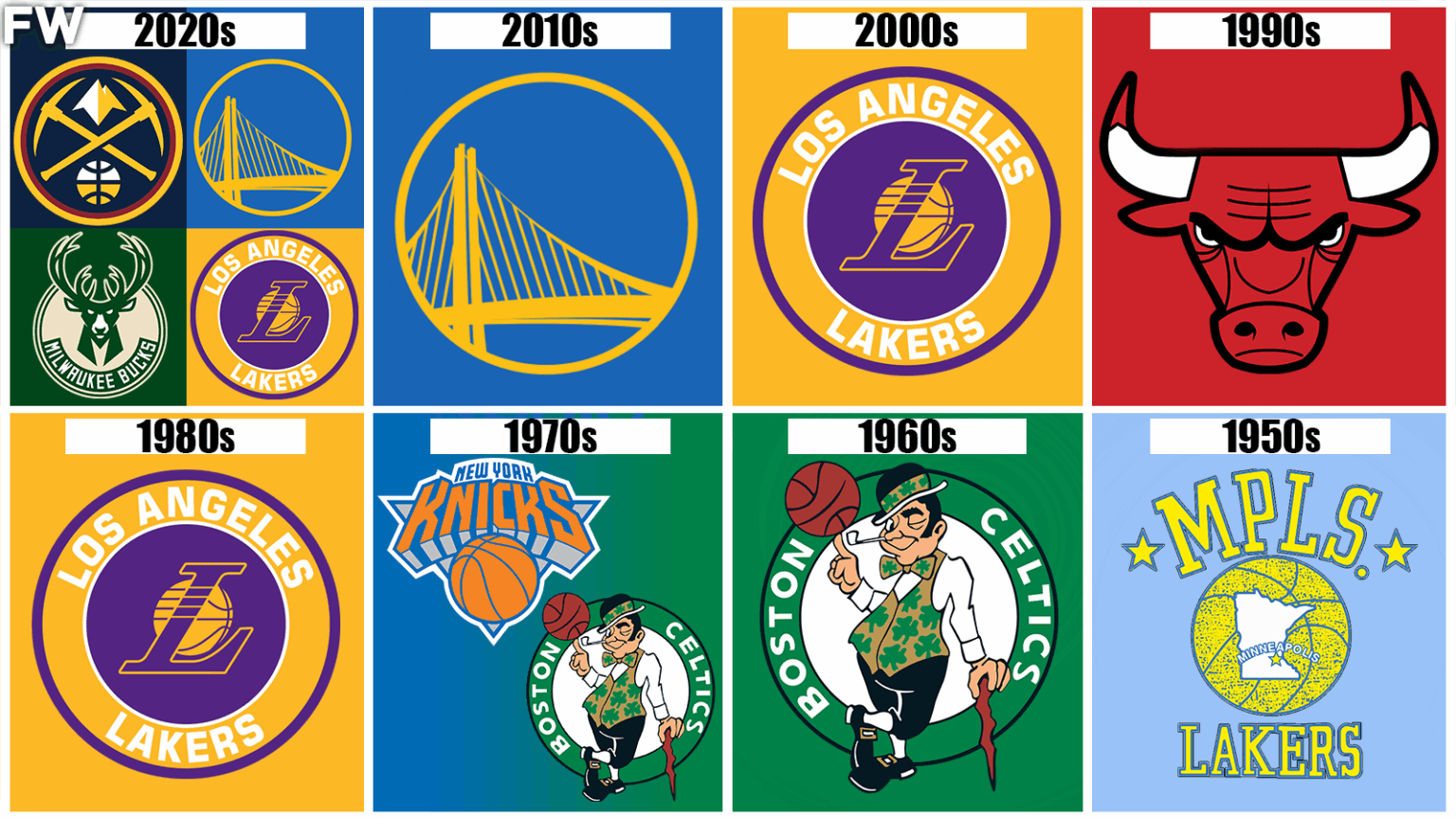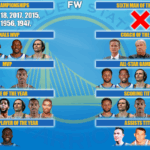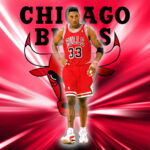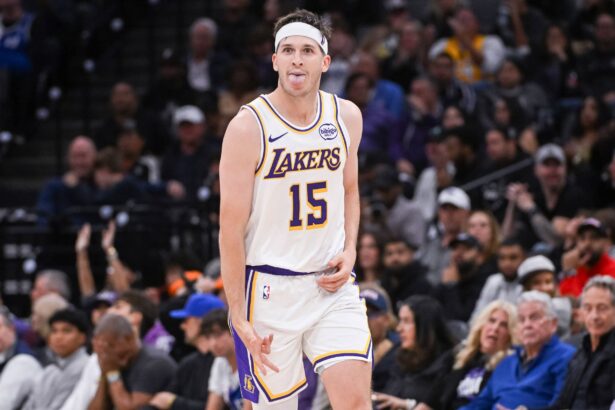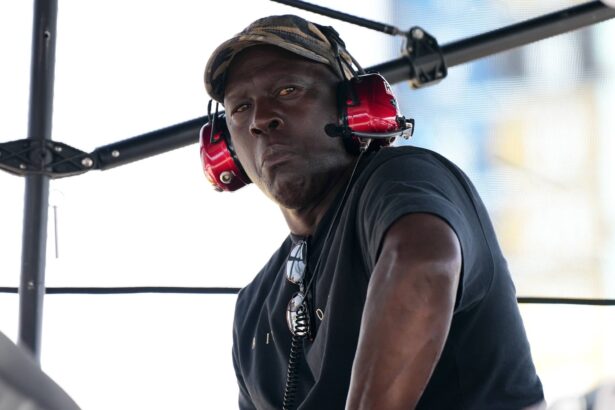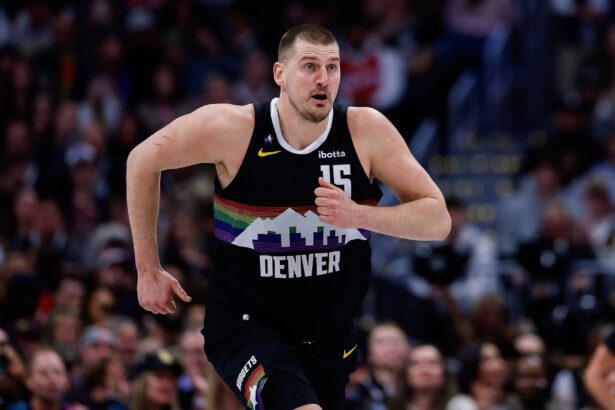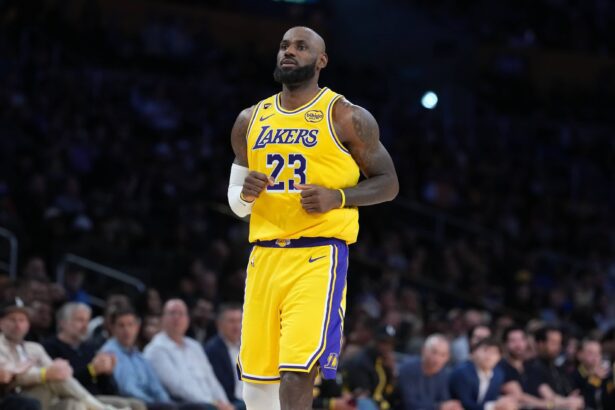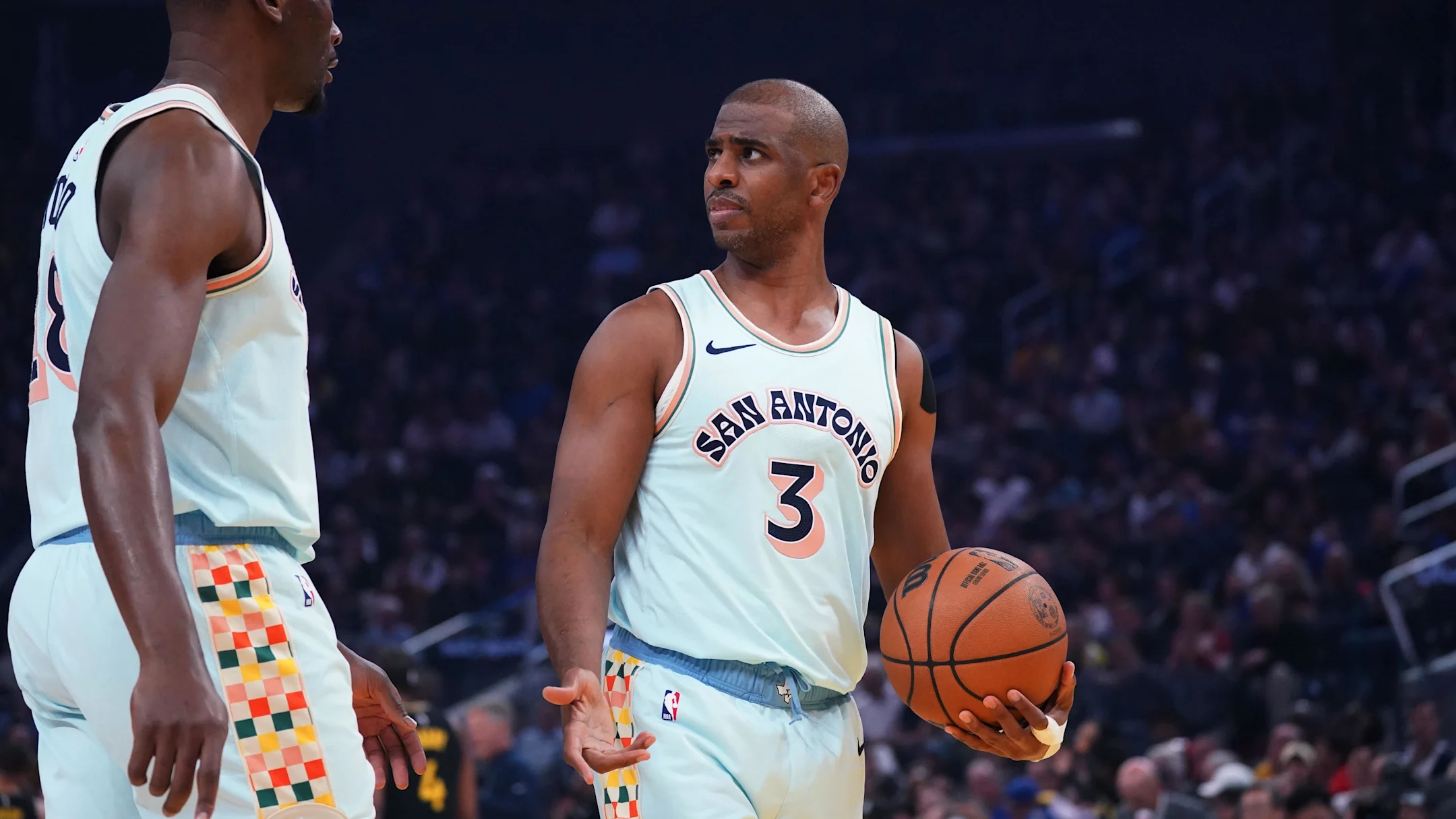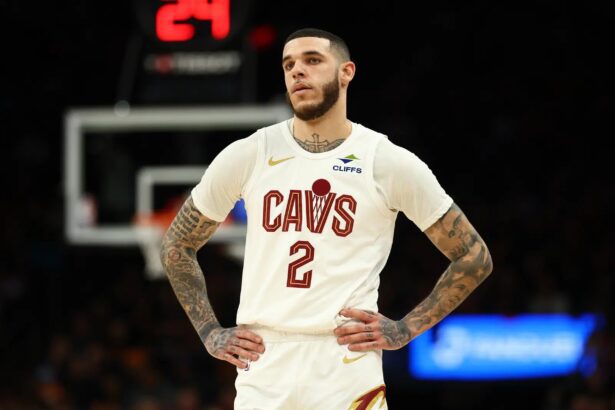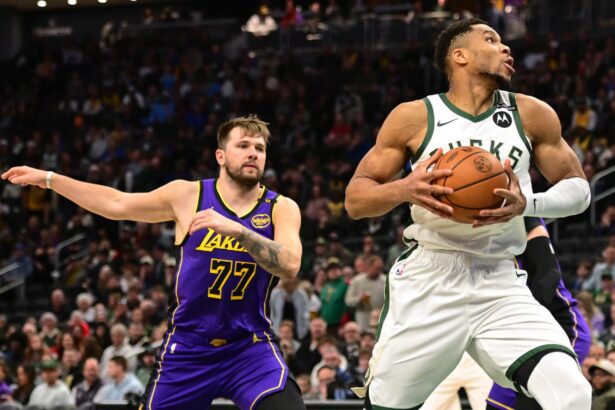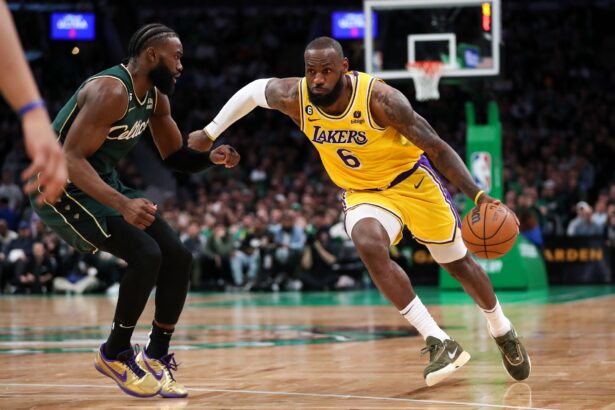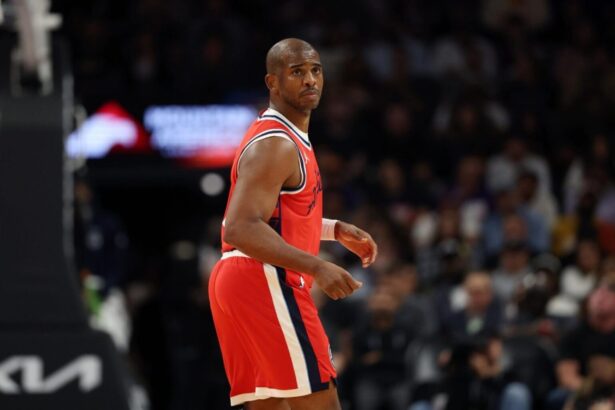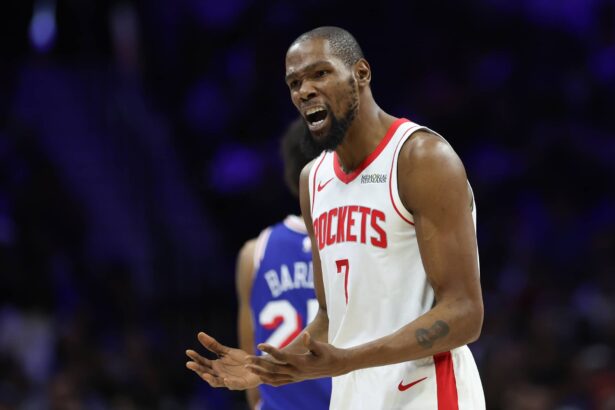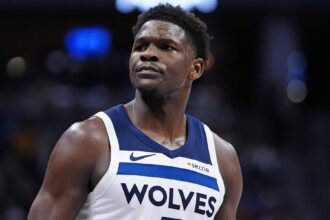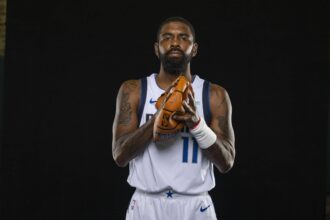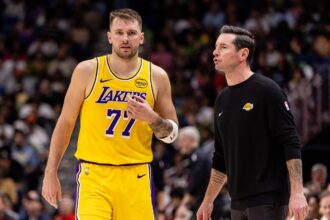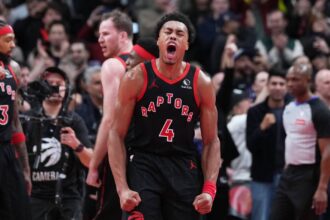- The Boston Celtics won all but one NBA championship during the 1960s
- The Chicago Bulls have a 6-0 NBA Finals record thanks to two three-peats in the 1990s
- The 1970s is the only decade that one NBA franchise failed to win more than two NBA championships
At the beginning of each and every NBA season, all 30 teams set out with the goal in mind of contending and winning an NBA championship. As history has unfolded over the last 76 years, there have been specific franchises that have risen to the top in terms of championships won far more than others. These teams instilled a winning culture that has withstood the test of time, as most of them are still revered as the most decorated and successful NBA franchises ever.
- 1950s – Minneapolis Lakers – 4 NBA Championships
- 1960s – Boston Celtics – 9 NBA Championships
- 1970s – New York Knicks, Boston Celtics – 2 NBA Championships
- 1980s – Los Angeles Lakers – 5 NBA Championships
- 1990s – Chicago Bulls – 6 NBA Championships
- 2000s – Los Angeles Lakers – 4 NBA Championships
- 2010s – Golden State Warriors – 3 NBA Championships
- 2020s – Los Angeles Lakers, Milwaukee Bucks, Golden State Warriors, Denver Nuggets – 1 NBA Championship
Today, we will be going decade by decade to break down which NBA teams ruled those decades in terms of championships. Franchises that include the Celtics led by Bill Russell, the Lakers led by Magic Johnson, and the Bulls, led by Michael Jordan, all dominated their respective eras and won more NBA championships than any other teams during a 10-year span. For those that need a reminder, this is how we break down each decade:
1950 to 1959
1960 to 1969
1970 to 1979
1980 to 1989
1990 to 1999
2000 to 2009
2010 to 2019
2020 To Present
As we go through each decade, you can expect us to recap every NBA championship won by the franchise that led each decade, along with the players who did the most to lead them to the promised land. These are the NBA teams who won the most championships in each decade.
1950s – Minneapolis Lakers – 4 NBA Championships
Championships Won: 1950, 1952, 1953, 1954
During the 1950s, the Minneapolis Lakers led the decade by winning four of the 10 possible NBA championships up for grabs. The only other team to win more than one NBA championship during the 1950s was the Boston Celtics, who won two in 1957 and 1959, but we will get to them later. The decade began with the Lakers claiming the first championship in 1950. The Lakers were led by George Mikan, who dominated the Syracuse Nationals in the Finals with 32.2 points per game. Mikan led the Lakers to their second straight championship after also winning in 1949.
After missing out on the championship in 1951, the Lakers would go on to collect the very first three-peat as NBA champions in history from 1952 through 1954. The 1952 Finals would be a series that went the full seven games. In the end, It was George Mikan once again who rose to the occasion and led the Lakers to the title over the Knicks. Mikan averaged 21.7 points per game and 17.4 rebounds per game in the series to get the win.
The 1953 NBA Finals would be a rematch between the New York Knicks and Minneapolis Lakers, with a much more dominant victory going to the Lakers this time around. The Lakers would win the championship in five games this time, with Mikan averaging 20.8 points per game in the series. The Lakers would capture their fourth and final championship of the 1950s in 1954 in another 7-game series, this time with the Syracuse Nationals. Mikan would again lead the team with 18.1 points per game but got some help from Vern Mikkelsen, Jim Pollard, and Clyde Lovellette, who each added over 10.0 points per game.
1960s – Boston Celtics – 9 NBA Championships
Championships Won: 1960, 1961, 1962, 1963, 1964, 1965, 1966, 1968, 1969
No other team in NBA history dominated a decade like the Boston Celtics dominated the 1960s with nine out of a possible 10 NBA championships. The Celtics featured a wide range of Hall of Fame talent that came together to form one of the greatest dynasties that the NBA has ever seen. Names like Bill Russell, Bob Cousy, Sam Jones, Bill Sharman, Tom Heinsohn, and so many more helped the Celtics capture a total of 11 NBA championships in 13 seasons from 1957 through 1969, the single greatest stretch for any team in any sport.
The Celtics would begin the 1960s by winning the first seven championships of the decade. In 1960, the Celtics would beat the Hawks in a seven-game battle in the Finals. Tom Heinsohn led all scorers for the Celtics with 22.4 points per game, while Bill Russell added 16.7 points and 24.9 rebounds per game in the series. In 1961, the Celtics would take down the Hawks again, this time in five games, once again led by Heinsohn’s scoring of 22.0 points per game and 17.6 points and 28.8 rebounds per game from Russell.
The dominance would continue through 1962 as the Celtics took on the Lakers in a seven-game back-and-forth series. The Celtics would win Game 7 behind a 40-rebound night from Bill Russell for their third straight championship. Boston would win their fourth straight NBA title in 1963 over the Lakers as well. Sam Jones and Tom Heinsohn would each average over 23.0 points per game, while Russell added 20.0 points and 26.0 rebounds per game in the win. In 1964, The Celtics would take down the Warriors in five games for their fifth straight championship as Russell prevailed in his showdown with Wilt Chamberlain on the game’s biggest stage.
The Celtics would once again go back-to-back as champions in 1965 and 1966. Both victories would come at the expense of the Lakers, who they defeated in five games in 1965 and in seven games in 1966. In 1965, Boston was led by 27.8 points per game from Sam Jones, while Russell provided all they needed on the glass with 25.0 rebounds per game. In 1966, the Lakers would fight their hardest, but 25 points and 32 rebounds from Russell in Game 7 sealed the deal.
The Celtics would win their eighth and ninth championship of the 1960s in 1968 and 1969. Boston would get a six-game victory over the Lakers in the Finals. John Havlicek led Boston with 27.3 points per game, and Sam Jones added 21.0 points per game as well. Russell was his usual self with 21.8 rebounds on top of 17.3 points per game. The 1969 season would be the final year in which Bill Russell would grace the hardwood for the Boston Celtics. It was only fitting that he went out in style as an NBA champion one final time. In Game 7 of the 1969 Finals, Boston would get 20-point games from John Havlicek, Em Bryant, and Sam Jones to win the series and title for the 11th time in 13 years, sending off the greatest player in franchise history in the perfect way.
1970s – New York Knicks, Boston Celtics – 2 NBA Championships
New York Knicks Championships Won: 1970, 1973
Boston Celtics Championships Won: 1974, 1976
The 1970s would see a lot of parity around the NBA as eight different teams took home championships from 1970 through 1979. The Knicks, Bucks, Trail Blazers, Bullets, and SuperSonics all took home their first NBA championship as well. Speaking of the Knicks, they are tied for the decade lead in the 1970s, with two championship wins over the Lakers in 1970 and 1973.
In 1970, the Knicks would be willed to victory by their star duo of Walt Frazier and Willis Reed. Frazier would record 36 points and 19 assists in the contest, while Reed provided all the emotional support he could muster, injecting the Knicks with life as he returned from a torn thigh muscle. The Knicks would defeat the Lakers in Game 7, 113-99. In 1973, it would be more of a one-sided affair in favor of New York. The Knicks would defeat the Lakers in five games, led by Willis Reed’s Finals MVP performance of 16.4 points and 9.2 rebounds per game.
The Boston Celtics were also able to navigate the days following the departure of Bill Russell with two championships of their own in 1974 and 1976. Led by their star duo of John Havlicek and Dave Cowens, the Celtics would pick up wins over the Milwaukee Bucks in 1974 and the Phoenix Suns in 1976. In 1974, Havlicek would lead the way with Finals MVP honors in a seven-game series win over Milwaukee. Havlicek averaged 26.4 points, 7.7 rebounds, and 4.7 assists per game, while Dave Cowens recorded 28 points and 14 rebounds in Game 7.
The Celtics would win their second championship of the decade just two seasons later against the Phoenix Suns. The series would go six games before Boston sealed the championship behind JoJo White’s 21.7 points, 5.8 assists, and 1.5 steals per game Finals MVP performance. Cowens would also add 20.5 points and 16.3 rebounds per game in the win.
1980s – Los Angeles Lakers – 5 NBA Championships
Championships Won: 1980, 1982, 1985, 1987, 1988
When it comes to the 1980s, there was a power struggle between two teams to claim the 80s as theirs. The Boston Celtics and Los Angeles Lakers would meet numerous times on the NBA’s biggest stage to decide the NBA championship while the rivalry between the two teams as well as Magic Johnson and Larry Bird, did wonders for the NBA business-wise. In the end, it was the greatest show in the world, the Showtime Lakers, winning five NBA championships to Boston’s three and taking the title of Team of the Decade in style.
The Lakers captured their first NBA championship in 1980, led by Kareem Abdul-Jabbar and young rookie phenom Magic Johnson. After an injury to Kareem late in their Finals series against the 76ers, Johnson filled in at center in Game 6 and delivered a performance for the ages. Johnson recorded 42 points, 15 rebounds, and 7 assists to seal the series for the Lakers and become the youngest Finals MVP in NBA history, a record that stands to this day.
The Lakers would capture another NBA title just two years later against the 76ers once again. This series would also go six games, with Magic walking away with his second Finals MVP award. Johnson averaged 16.2 points, 10.8 rebounds, and 8.0 assists in the series to claim the award. It would be another three seasons until the Lakers won their third championship of the decade with a win over the Boston Celtics for the first time in the NBA Finals. The Lakers would win in six games, with Kareem Abdul-Jabbar taking home Finals MVP averaging 25.7 points, 9.0 rebounds, 5.2 assists, 1.0 steals, and 1.5 blocks per game.
The Lakers’ final two championships of the decade would come in the form of back-to-back wins in 1987 and 1988. Magic Johnson would win his third Finals MVP in a six-game series win over the Celtics in 1987. Johnson averaged 26.2 points, 8.0 rebounds, and 13.0 assists per game in the series. In 1988, it would be a tough series to win their fifth championship of the decade. The series would go seven games with the Bad Boy Pistons. In Game 7, Big Game James Worthy would earn the nickname with a performance of 36 points, 16 rebounds, and 10 assists to seal the series and win Finals MVP honors.
1990s – Chicago Bulls – 6 NBA Championships
Championships Won: 1991, 1992, 1993, 1996, 1997, 1998
The 1990s is when we watched the birth of the biggest star in the history of the sport and the greatest of all time dominate the hardwood. Michael Jordan and the Chicago Bulls were pretty much unstoppable during the 1990s, winning six NBA championships by way of two three-peats. They were the first team since the Celtics of the 60s to three-peat as NBA champions and it was all led by the best player in the world, Michael Jordan. Of course, Phil Jackson, Scottie Pippen, Horace Grant, Dennis Rodman, and many others contributed as well but Jordan shined brighter than any star in the world at the time.
Their first three-peat would get underway in a five-game drubbing of the Lakers in the 1991 NBA Finals. Jordan would claim his first Finals MVP averaging 31.2 points, 6.6 rebounds, and 11.4 assists per game. In 1992, the Bulls would meet Clyde Drexler and the Portland Trail Blazers. Using whatever motivation he could, Jordan torched Portland as well with 35.8 points, 4.8 rebounds, and 6.5 assists per game from the GOAT. The 1993 Finals would be between the Bulls and MVP Charles Barkley. Feeling slighted for losing the MVP award, Jordan exploded for 41.0 points per game to down Phoenix in six games for his third straight Finals MVP award.
After a nearly two-year hiatus from the sport, Jordan returned to lead the Bulls to 72 wins in the regular season and a breeze to the NBA Finals. Against the Seattle SuperSonics, Jordan would lead the Bulls to a six-game series win with his fourth Finals MVP performance of 27.3 points, 5.3 rebounds, and 4.2 assists per game. In 1996 and 1997, the Bulls would take down the Utah Jazz in both series in six games. In 1997, Jordan sealed his fifth Finals MVP and fifth title with 32.3 points, 7.0 rebounds, and 6.0 assists per game. In 1998, the Bulls won their sixth NBA title and Jordan won his sixth Finals MVP with 33.5 points, 4.0 rebounds, and 2.3 assists per game.
2000s – Los Angeles Lakers – 4 NBA Championships
Championships Won: 2000, 2001, 2002, 2009
The Los Angeles Lakers ushered in the 2000s with the most dominant stretch of basketball for any team led by the most dominant player in NBA history. In 2000, Shaquille O’Neal would have a near-perfect season as he collected an MVP, All-Star MVP, and Finals MVP leading the Lakers to a dominant stretch that ended with a win over the Pacers in the Finals. O’Neal would win Finals MVP honors with 38.0 points and 16.7 rebounds per game.
That end result in 2000 would be the same over the next two seasons as a young Kobe Bryant began to blossom into a superstar alongside O’Neal in 2001. The Lakers would lose just one game during the entire NBA playoffs, which happened to be Game 1 of the NBA Finals against the Philadelphia 76ers. The Lakers would win four straight after that, with Shaq winning another Finals MVP, averaging 33.0 points and 15.8 rebounds per game, while Bryant added 24.6 points and 7.8 rebounds per game.
In 2002, the Lakers would make easy work of the New Jersey Nets in a four-game sweep in the NBA Finals. Shaq averaged 36.3 points, 12.3 rebounds, and 2.8 blocks per game for his third straight Finals MVP, while Kobe added 26.8 points, 5.8 rebounds, and 5.3 assists per game. The Lakers’ final title of the 2000s would come in 2009, long after Shaq had departed L.A. and the team was now Kobe’s. In this series, Kobe and the Lakers would annihilate Dwight Howard and the Orlando Magic in five games. Bryant would win his first of two Finals MVP awards with 32.4 points, 5.6 rebounds, and 7.4 assists per game. The Lakers would go on to repeat as NBA champions in 2010 as well.
2010s – Golden State Warriors – 3 NBA Championships
Championships Won: 2015, 2017, 2018
The 2010s was also a decade in which we saw a bit of parity around the NBA, with one team taking control of the decade by its latter stages. The only surprise of the 2010s is that the Golden State Warriors didn’t get out of the decade with more than three NBA championships. The Warriors burst onto the scene in 2015, led by new coach Steve Kerr and their three-point attack led by MVP Stephen Curry and teammate Klay Thompon.
The Warriors would win their first NBA championship in 2015 over LeBron James and the Cavaliers with a six-game series win. Andre Iguodala was named Finals MVP for his defensive effort on LeBron James, while Curry led the scoring with 26.0 points per game on 44.3% shooting overall and 38.5% shooting from three.
After blowing a 3-1 series lead in the 2016 Finals, the Warriors went out and added the NBA’s most lethal scoring threat in Kevin Durant, tipping the scales of power heavily in their favor. This would lead to back-to-back NBA championships in 2017 and 2018, both coming at the expense of LeBron James and the Cavaliers once again. In 2017, Durant would lead the Warriors with a Finals MVP performance of 35.2 points, 8.2 rebounds, and 5.4 assists per game. In 2018, it would be even more unfair as the Warriors swept Cleveland behind another Finals MVP performance from Durant with 28.8 points, 10.8 rebounds, and 7.5 assists per game.
2020s – Los Angeles Lakers, Milwaukee Bucks, Golden State Warriors, Denver Nuggets – 1 NBA Championship
Los Angeles Lakers Championships Won: 2020
Milwaukee Bucks Championships Won: 2021
Golden State Warriors Championships Won: 2022
Denver Nuggets Championships Won: 2023
The 2020s have gotten off to a stellar start in terms of showing the parity around the NBA in this era. Four different teams have won NBA championships this decade already, including the Nuggets, who won their first in franchise history, and the Bucks, who won their first in 50 years in 2021.
The Lakers got the decade kicked off with an NBA championship under peculiar circumstances in the 2020 Bubble after the COVID-19 pandemic. LeBron James and Anthony Davis led the Lakers to a series win over the Miami Heat, with James winning his fourth Finals MVP award. In 2021, it would be the Milwaukee Bucks, led by Giannis Antetokounmpo, who would be named NBA champions. Giannis would take home Finals MVP honors with 35.2 points, 13.2 rebounds, and 5.0 assists per game.
The 2022 Finals would be one of vindication for Stephen Curry and the Golden State Warriors. They got back to the mountaintop with Curry leading the way in six games over the Boston Celtics. Curry would finally win his first Finals MVP award averaging 31.2 points, 6.0 rebounds, and 5.0 assists per game. Finally, in 2023, we watched a star be born, Nikola Jokic, as he finally got the respect he deserved by leading the Nuggets to their first NBA title. Jokic would average 30.2 points, 14.0 rebounds, and 7.2 assists in a five-game series win over the Heat, earning a Finals MVP to go with his two MVP awards sitting at home or wherever they may be.
We sincerely appreciate and respect you as a reader of our site. It would help us a lot if you follow us on Google News because of the latest update.
Thanks for following us. We really appreciate your support.

